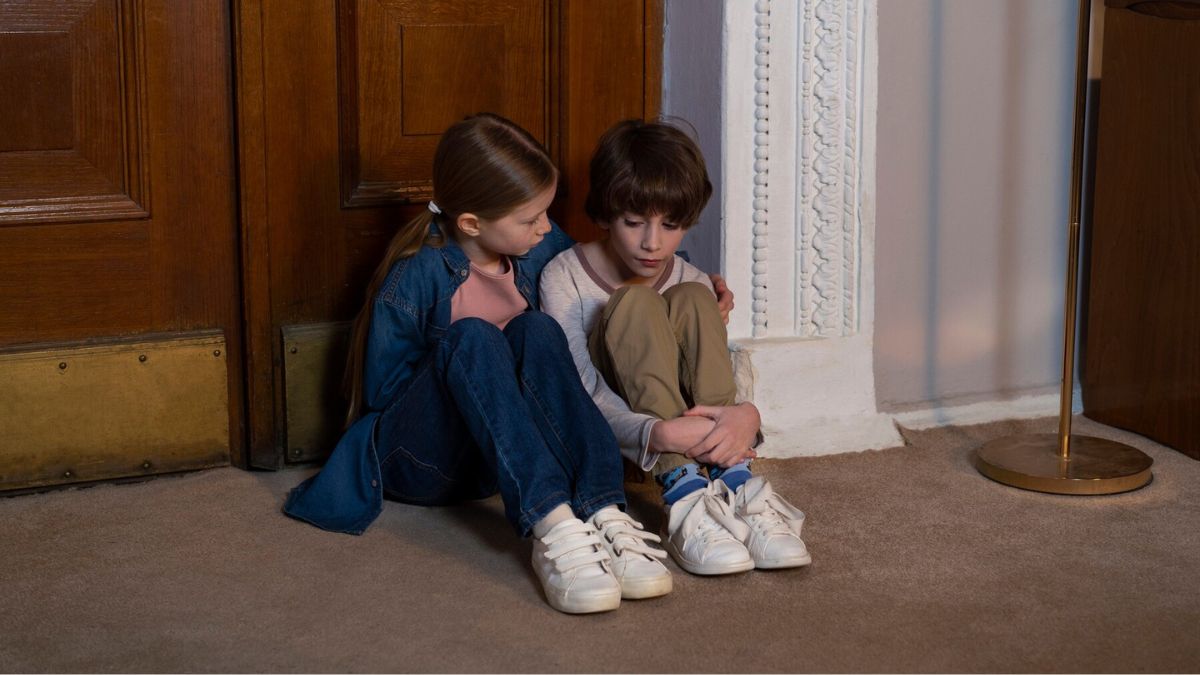
Children today face unprecedented mental health challenges, from academic pressure to the ever-present influence of social media. While awareness around mental health is increasing, early signs of emotional distress often go unnoticed because they don’t always manifest in obvious ways like sadness or withdrawal. Instead, they may appear subtly as irritability, exhaustion, or a lack of interest in activities. In this article, Dr. Zirak Marker, Sr. Psychiatrist & Advisor at MPower shares seven signs that your child’s mental health might be at stake.
Table of Content:-
Research indicates that one in five children experiences a mental health condition, yet many go undiagnosed because their struggles are often dismissed as "just a phase."
But how can parents differentiate between normal developmental changes and early signs of emotional distress? Here are seven often-overlooked red flags that may indicate your child needs support.
1. Persistent Fatigue That Isn’t Just ‘Laziness’
If your child constantly says they’re “too tired” to engage in activities they once loved, it might not just be a lack of sleep. Mental health conditions like anxiety and depression can cause physical exhaustion—draining their energy both mentally and physically.
What to look for: Regular complaints of tiredness despite adequate sleep, struggling to focus, or a lack of motivation to do even small tasks. Persistent fatigue can be a sign of emotional burnout, where the child feels overwhelmed and unable to cope with daily activities.
Tip: Keep a sleep diary to track your child's sleep patterns and energy levels. This can help identify if the fatigue is linked to poor sleep or emotional distress.
Also Read: Who Are Energy Vampires? Expert Shares The Truth About People Who Drain Your Energy
2. Irritability That Feels Out of Character
Mood swings are a normal part of growing up, especially during adolescence. However, when a child exhibits chronic frustration or sudden aggression, it may be a sign of underlying mental health issues in children such as anxiety, stress, or depression.
What to look for: Overreacting to small disappointments, frequent anger outbursts, or an inability to handle minor setbacks. Irritability can be a way for children to express their internal struggles when they cannot find the right words to describe their feelings.
Tip: If your child snaps at simple questions or seems constantly irritated, phrase your concerns with care and observation. Instead of asking "Why are you always in your room?" try "I've noticed you're spending more time alone lately - would you like to talk about it?" Or rather than saying "Why are you so angry all the time?" ask "I sense something's bothering you - I'm here to listen whenever you're ready." These approaches show you've noticed changes in their behaviour while leaving the door open for conversation on their terms.
3. Social Withdrawal Beyond Just Family

As children grow, they may naturally seek independence from their parents, which is a normal part of development. However, if they also begin to pull away from close friends or avoid social gatherings, it could be a sign of emotional distress.
What to look for: Excuses to skip outings, loss of interest in friendships, or spending excessive time alone. Social withdrawal can be a coping mechanism for children who feel overwhelmed by social interactions or fear judgment from their peers.
Tip: Encourage your child to maintain at least one close friendship and engage in social activities they enjoy. This can help them feel connected and supported.
Also Read: Signs Your Parenting Style Is Affecting Your Child's Mental Health
4. A Sudden Disinterest in Hobbies
Has your child abandoned a hobby they were once passionate about—sports, music, painting, or reading? This isn’t always a sign of changing interests. It could be anhedonia, a condition where a person loses the ability to feel joy—often linked to depression.
What to look for: Giving up on activities without replacing them with new interests, losing excitement for accomplishments, or frequently saying “I just don’t care anymore.” Anhedonia can make it difficult for children to find pleasure in activities they once enjoyed, leading to a sense of emptiness.
Tip: Instead of asking “Why don’t you play anymore?”, try “I noticed you haven’t played the guitar in a while. Is everything okay?”
5. Changes in Eating Patterns—Restricting or Overeating
Mental health struggles often affect appetite, leading to noticeable changes in eating patterns. Some children may eat less due to stress, while others may overeat as a way to seek comfort.
What to look for: Skipping meals, suddenly eating in private, being overly fixated on food choices, or drastic weight changes. Changes in eating patterns can be a sign of emotional distress, as children may use food to cope with their feelings.
Tip: Maintain regular family meals and create a positive, stress-free environment around food. Encourage open discussions about healthy eating habits.
Also Read: Having Emotional Stress? Here Is How to Deal With It

6. Intense Reactions to Failure or Rejection
Everyone dislikes failure, but children who overreact to small mistakes may have underlying anxiety or perfectionism. These intense reactions can be a sign that your child is struggling with deeper emotional issues and may need support to manage their feelings.
What to look for: Crying over minor setbacks, refusing to try new things out of fear of failure, or saying “I’ll never be good enough.” Intense reactions to failure can indicate a fear of not meeting expectations, leading to feelings of inadequacy.
Tip: Praise effort not just results. Instead of “Great job scoring a goal,” try “I love how hard you practiced for that game.”
7. Recognizing Subtle Signs Through Parental Intuition
Parents often have a unique ability to sense when something is not quite right with their child, even before the child can articulate their feelings. This instinct, often referred to as parental intuition, is a valuable tool in identifying early signs of emotional distress.
What to look for: A general shift in mood, subtle changes in body language, or unexplained emotional reactions. Parents' instincts are valuable in identifying early signs of distress, as they are often attuned to their child's usual behavior patterns.
Tip: Trust your instincts and seek professional advice if you feel something is off. Early intervention can make a significant difference in your child's mental health.
What Parents Can Do Next
Create an open, judgment-free space - When you notice changes, swap "Why are you acting this way?" with "I've noticed you seem quiet lately - want to talk about it?" This simple change helps your child feel safer sharing their feelings.
Validate their emotions - Let them know it's normal to feel stressed or overwhelmed sometimes. A simple "I understand this is tough" can help them feel heard and understood.
Lead by example - Show them healthy ways to handle stress. If you're feeling overwhelmed, share how you cope: "I'm taking a short walk to clear my head" or "I'm going to talk to someone about this."
Seek professional guidance early - Think of mental health check-ups like regular doctor visits - they're normal and helpful. Early support builds stronger emotional skills for life. Remember, seeking help isn't a sign of failure - it's smart parenting.
Final Takeaway: Don’t Wait for a Crisis
By the time mental health struggles become obvious, they’ve often been present for months. The earlier parents recognize hidden signs of distress, the sooner they can provide the support, reassurance, and professional guidance their child may need.
If you notice any of these signs, start the conversation today. Early intervention can make all the difference.
Also watch this video
How we keep this article up to date:
We work with experts and keep a close eye on the latest in health and wellness. Whenever there is a new research or helpful information, we update our articles with accurate and useful advice.
Current Version
